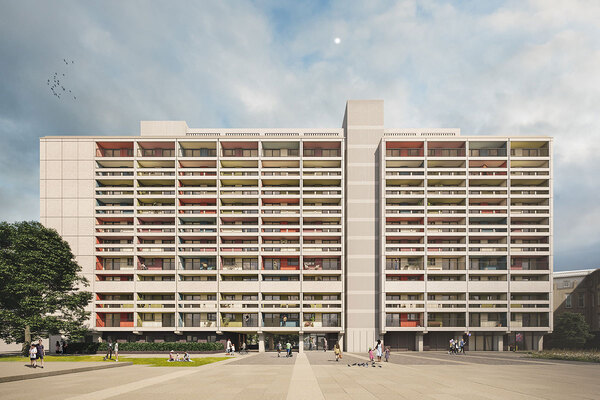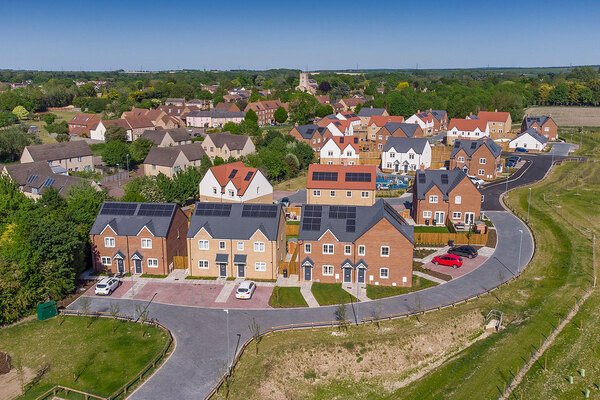Why does trust matter?
Trust is the basis for almost everything connected to the retrofit and decarbonisation agenda.
It forms the foundation on which the science, information and the experts tell us why we need to make rapid changes to our homes, to our behaviour and our lifestyles; it’s the reason we are willing to spend huge sums of money on insulation, energy efficient appliances, and low carbon products and services to live in a more sustainable way.
But what exactly do we mean by trust? The Oxford Dictionary definition is to have a firm belief in the reliability, truth, or ability of someone or something. We all like to believe that we are trustworthy people, but what gives us the right to that claim? Why, at times, do we find it difficult to trust the words, actions or behaviour of people or organisations that we so often interact with? Figuring out how to trust someone can be as important as being trustworthy yourself.
For me, trust is having a sense of assurance and confidence when dealing with someone or something; knowing that there is reliability, consistency and a reputation based on earnt credibility through demonstration of actions over time.
Thinking about my past roles working for local authorities and social housing providers as a lead for decarbonisation, I placed a lot of trust in factors that I had no control over including the climate science being robust to warrant our pace to be urgent, the subsequent government policy framework to be aligned to steer the decisions and actions required, the funding being available to enable the right work to be done at the right time, and the technology to be efficient, easy to use and priced in an affordable way. These are all essential factors on which we base huge programmes of work committing significant financial and staffing resources, and we have little option but to place our trust in the how we are being guided by these interconnected drivers.
Incorporating these elements into project implementation, our trust base turns to areas where we have more control and influence including creating good quality data to inform the works needed and where; recruiting staff who are competent, experienced and invested; and appointing contractors who are suitably skilled to provide the high quality work required to ultimately create our good reputation for that intervention.
For many organisations who are appointing into roles to deal with retrofit and decarbonisation, the skillsets sought are often focussed on technical knowledge and expertise, strategic know-how, project management, and communication skills. How often does trust get mentioned in the conversation as an essential quality in a person? If trust is not considered as a core feature of the personnel working on this agenda, communication and coordination with colleagues, partners, clients, and more critically customers become difficult, leading to projects failing and reputations crumbling.
Creating trust becomes fundamental to this agenda when working in occupied properties. We all too often take for granted that householders will allow us into their homes to carry out work to install measures that haven’t been chosen by them or undertaken in the timescale that suits them. How do we create that sense of confidence for people to allow this imposition and disruption to enable us to meet our obligations?
Based on my experience developing, delivering, and managing retrofit programmes since the early days of CERT and CESP and every iteration thereafter, the central considerations to building trust in all parts of the process, in my view, is to adopt the following behaviours:
- Communicate effectively – be clear about what you are doing and why. Review your communication methods and messaging from every angle making sure that it leaves no room for misinterpretation. Remember it’s not a one-way process, so listening and being open and agile to feedback is key for effective communication.
- Be honest and do what you say you’re going to do – tell the truth even if it’s uncomfortable to do so. Own up if parameters change or delays are likely, or things are not going as they should. Nobody wants to hear excuses, if something goes wrong, be upfront about it and more importantly, say what you will be doing to correct the situation. Developing a reputation for being dishonest is the surest way to kill confidence and trust, and your project.
- Be genuine – people are more likely to trust those who are friendly and respectful towards them. Being open and available can create trusting relationships as it shows that you care and are interested, not just in achieving your own outputs, but also of the impact decarbonisation has on improving homes, lives and the environment.
- Think long term – how you act today affects how people perceive you in the future. Bad and unpleasant experiences from first interactions lead to more caution in allowing that to happen a second time round – once bitten twice shy has never been truer phrase.
The principles of creating high levels of trust are also critical to internal working relationships. When trust breaks down, the work environment becomes highly stressful for everyone involved. Personnel can feel demoralised with a loss of freedom and flexibility as micromanagement creeps in and work activity becomes subject to closer and unwarranted scrutiny and changes. Communication and collaborations break down and productivity decreases or is lost; and once credibility starts to slip, reliability and reputations break.
Tackling decarbonisation should be the catalyst for new ideas and partnerships to share experience and good practice. Across my professional network I have encountered innovative thinkers, fantastically creative ideas and real passion and zeal to do good work. I have also seen and experienced commitment and enthusiasm being curbed due to lack of wanting to go too far too fast. The competing challenges faced by organisations are well understood but it is essential to show trust in those who are buzzing about this agenda as they will find a way to tailor those great ideas to a scale and pace that suits the circumstances best.
Overall, a high level of trust creates a more positive employee experience and leads to a more productive workplace where people feel safe, empowered and respected.
As a newly established freelancer in the field of sustainability I am now reliant on people and organisations trusting me as an individual. I have always worked by the principles outlined above; being reliable, consistent, genuine, and helpful which has led to a constant stream of work over the last twelve months. My mantra has always been to say what I do and do what I say…and to do it well. A client described a recent commission I delivered as confident, high quality and authentic with the final piece far exceeding their expectations.
Trust me, I know what I am doing.
The question to ask yourself is do people trust you?
Georgina Patel is an independent sustainability consultant and a member of the 2023 Unlock Net Zero Climate Champions’ Power List



